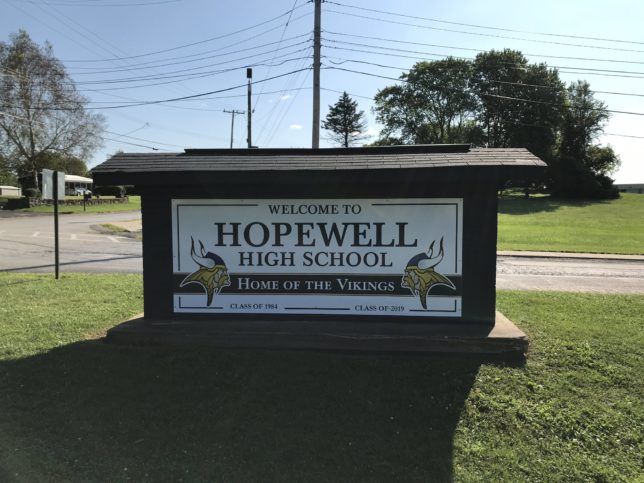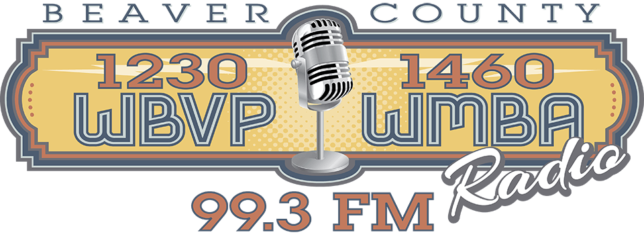
Harrisburg, Pa.—With new modeling projecting 22,000 new COVID-19 cases per day in Pennsylvania in December, Governor Tom Wolf and Secretary of Health Dr. Rachel Levine today announced new targeted mitigation measures to help stop the spread during this critical time. These include a robust enforcement plan targeted at chronic violators along with an effort to ensure schools are safe and in compliance with COVID safety plans. The administration is also encouraging Pennsylvanians to limit unnecessary travel and stay at home.
“As our hospitals and health care system are facing greater strain, we need to redouble our efforts to keep people safe,” Gov. Wolf said. “If our health care system is compromised, it isn’t only COVID-19 patients who will suffer. If we run out of hospital beds, or if hospital staff are over-worked to the breaking point, care will suffer for every patient – including those who need emergency care for illnesses, accidents, or chronic conditions unrelated to COVID-19.”
In the past week, the number of COVID-19-attributable deaths has quadrupled, and the average daily case count is seven times higher than it was two months ago.
Dr. Levine noted last week that modeling available from the Institute of Health Metrics and Evaluation (IHME) at the University of Washington projects that Pennsylvania will run out of intensive care beds in December.
The IHME’s modeling also projects that if mitigation efforts are not adhered to, Pennsylvania could have more than 32,000 deaths from COVID-19 by Feb. 23, 2021 – that’s in just three months. With universal mask-wearing, those deaths can be reduced by half.
“As the Secretary of Health, I have issued a series of advisories and orders intended to help stop the spread during this critical time, to protect our hospitals, our health care workers and the lives of our fellow Pennsylvanians,” Dr. Levine said. “Our collective responsibility continues to be to protect our communities, our health care workers and our most vulnerable Pennsylvanians from COVID-19. That has not changed.”
The new measures include revamped school safety attestation, targeted business and gathering restrictions, and a new enforcement plan that includes liability protection for businesses enforcing the Secretary of Health’s strengthened mask-wearing order. The administration is also advising all Pennsylvanians to limit unnecessary travel and keep gatherings held in homes to members of the same household.
Requiring Strict Safety Measures in Our Schools
Summary: The Wolf Administration is requiring Pre-K to 12 public schools in counties that have been in the substantial transmission level for at least two consecutive weeks to commit to safety measures to ensure the safety and well-being of students and educators. If they choose not to, they must move to fully remote learning without all extra-curricular activities. As of Friday, Nov. 20, there are 59 counties in the substantial transmission level for at least two consecutive weeks.
Requirements for Pre-K to 12 public schools in substantial counties for at least two consecutive weeks:
- Schools are mandated to comply with updated protocols if a COVID-19 case is identified in the school building.
- By 5 p.m. Monday, Nov. 30, chief school administrators and the governing body president/chair must sign an attestation form stating they have either transitioned to fully remote learning or are complying with the orders if they are conducting any in-person instruction while in the “substantial” range of transmission.
- Those schools that do not sign or comply with an attestation are required to provide only fully remote learning and suspend all extracurricular activities as long as the county remains in the substantial transmission level.
“All of us have a responsibility to slow the spread of this virus so our children can stay or return to the classroom,” Gov. Wolf said.
Keeping Businesses, Customers and Employees Safe
Summary: The administration is revising and reissuing its orders to protect businesses, customers, and employees. This order will consolidate previous orders and includes reiterating cleaning and social distancing requirements, mandatory telework requirements unless impossible, and other safety measures.
- Telework is mandatory unless impossible; safety measures required for businesses including cleaning, social distancing and masking.
- Online sales and curbside pickup for all shopping are encouraged.
Furthermore, to help with enforcement of existing masking orders in businesses, the administration is introducing liability protection for all businesses that maintain in person operations and are open to the public. Businesses will receive immunity from civil liability only as related to the Secretary’s masking order given that individuals and entities are engaged in essential emergency services activities and disaster services activities when enforcing the order.
Strengthening Gathering Limitations
Summary: As Pennsylvania sees an increase in cases, the commonwealth is strengthening gathering restrictions. All large events and gatherings are now reduced until further notice. In addition, the retail food services industry, including bars, restaurants, and private catered events must end alcohol sales for on-site consumption at 5 p.m. on Nov. 25, 2020 only.
- All indoor and outdoor events/ gatherings categories size limits will be reduced
- New limits are as follows:
Maximum Occupancy Calculator for indoor events:
|
Maximum Occupancy
|
Allowable Indoor Rate
|
|
0-2,000 people
|
10% of Maximum Occupancy
|
|
2,001 – 10,000 people
|
5% of Maximum Occupancy
|
|
Over 10,000 people
|
No events over 500 people
|
Maximum Occupancy Calculator for outdoor events:
|
Maximum Occupancy
|
Allowable Outdoor Rate
|
|
0-2,000 people
|
15% of Maximum Occupancy
|
|
2,001 – 10,000 people
|
10% of Maximum Occupancy
|
|
Over 10,000 people
|
5% of Maximum Occupancy up to 2,500 people
|
- Household gatherings are also advised against when attendees include non-household members as noted through the Secretary of Health’s Stay at Home Advisory.
- To specifically address large crowds, on Nov. 25, 2020 only, all sales or dispensing of alcoholic beverages for on-site consumption at businesses in the retail food services industry, including bars, restaurants, and private catered events must end at 5 p.m. Indoor dining may continue, takeout is encouraged.
Empowering local government
- The governor and Secretary of Health’s orders were issued pursuant to the authority granted to them under the law, and as such they have the force and effect of law. This authority extends to all local enforcement agencies in Pennsylvania. Local law enforcement received guidance on enforcement of the various COVID-19 orders in place from the Pennsylvania State Police through the PA Chiefs of Police Association.
- Given the importance of local engagement, the Department of Health has provided recommendations for local municipal leaders, as well as county-wide leadership. While statewide mitigation steps are necessary, local leaders can implement their own orders, ordinances, or directives in order to protect health and safety as long as they are stricter than those mandated by the state. Additionally, counties and municipalities are authorized to enforce state law, including orders from the Secretary of Health or Governor.
- Local leaders at all levels of government should exercise their authority and influence to support public health efforts that will protect residents and local economies. When local leaders engage, their constituents understand that they are supported in adopting and sustaining preventive behaviors.
- The Department of Health has established thresholds representing low, moderate, or substantial community transmission of COVID-19, and corresponding actions that can be taken by county and municipal leaders. A county’s threshold may change week-by-week as incidence and percent positivity rates rise and fall. Leaders should implement more public health actions rather than fewer if their county is between thresholds. To determine level of community transmission, counties should use the Department of Health’s COVID-19 Early Warning Monitoring System Dashboard. The Department of Health and the Department of Education use the same metrics to recommend instructional models for school leaders.
- Recommendations for each level of community transmission include increased communication, collaborative planning, stricter directives, and working with school leaders.
Ramping Up Enforcement
Summary: Orders already in place and those announced today are all enforceable, and law enforcement and state agencies will be stepping up enforcement efforts, issuing citations and fines, and possibly regulatory actions for repeat offenders.
Given that this is a critical time for mitigation efforts and orders to be followed, the Wolf Administration is stepping up enforcement on the following orders:
- Out of State Travel
- Mask-wearing
- Business Safety, including telework, occupancy, cleaning, social distancing
- Restaurant Mitigation, including occupancy, masking, social distancing, self-certification
- Gathering Limits
- School Attestation and Mitigation
- Orders are enforceable as a disease control measure under the Disease Prevention and Control Law. Citations may be written under the Administrative Code of 1929 71 P. S. § 1409 and/or the Disease Prevention and Control Law of 1955 35 P.S. § 521.20(a). The decision whether to issue a warning or a citation is made on a case-by-case basis and determined by the unique circumstances of each encounter.
- Persons who fail to comply with an order may be fined between $25 and $300 dollars.
- Enforcement agencies include the Pennsylvania State Police, local law enforcement, personnel from the departments of Agriculture and State, and PA Liquor Control Board stores who interact with visitors.
Because a component of enforcement is investigating complaints, the Department of Health, with assistance from other agencies, is bolstering its ability to receive and respond to complaints from customers and employees. The department will continue to investigate complaints provided via its webform and plans to use additional staff from other state agencies under the governor’s jurisdiction to process complaints.
Following a complaint about a business, the Department of Health will send a warning letter informing the business of the potential consequences, including fines and closure if the business is not compliant with the mitigation orders. If a business continues to receive complaints, it risks referral to the Pennsylvania State Police or regulatory agencies, further fines and possible closure.
“As Pennsylvanians, we have a responsibility to one another, to do what we can to protect each other and preserve the life we all love in this commonwealth,” Gov. Wolf said. “For those who refuse to do their part to protect their neighbors and communities and refuse to accept that their actions have consequences that cause pain and suffering for others, we will be stepping up enforcement of all of the public health orders Dr. Levine and I have put in place.
“We are in a very dangerous situation, and we need to work together to stop the spread of COVID-19 right now because if we give in to the virus, we will lose many more Pennsylvanians. And that is unacceptable.”
Governor Wolf’s Mitigation, Enforcement, and Immunity Order
Governor Wolf’s Retail Food Services Mitigation Order
Governor Wolf’s Stay at Home Advisory
Governor Wolf’s Public School Attestation Order
Secretary of Health’s Mitigation and Enforcement Order
Secretary of Health’s Retail Food Services Mitigation Order
Secretary of Health’s Stay at Home Advisory
Secretary of Health’s Public School Attestation Order
Secretary of Health’s Elective Procedures Order












